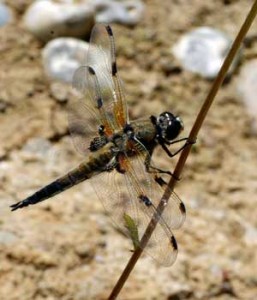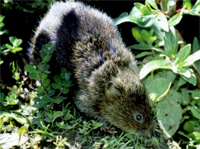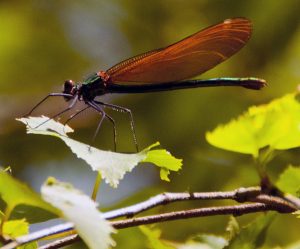Rivers, rainfall, abstraction, and pollution.

Many parts of the UK have recently experienced the driest October to March period for a long time. This was followed by two relatively dry Spring months - April & May. The Met Office Map of the UK found here - shows the rainfall pattern across the country as a percentage of the average rainfall for a 30 years period.
This has not only affected gardeners and farmers but river systems across the United Kingdom. This is bad news as many rivers have already had too much water taken from them (abstracted) - for farming & industry. The problem of over-extraction of river water is not helped by the fact that one fifth of all piped water is lost through leaks. Thames water was recently fined millions for failing to reach its leak reduction targets.
Rivers that were once used for swimming, boating, canoeing have been reduced to streams; shadows of their former selves. Particularly at risk are chalk streams (like the River Chess which ‘flows’ through parts of Buckinghamshire and Hertfordshire), these could dry up completely.
Rivers have also suffered from sewage and agricultural pollution; these bring high levels of nitrate and phosphate (eutrophication) which encourage the growth of algae - which can smother the stream bed or cause the water to become turbid - so light cannot penetrate, restricting the growth of other plants.
 This trilogy of factors means that the flow of water through river systems is not only reduced but the water quality has been affected. This affects fish, particularly those that migrate upstream, and animals such as water voles. Water voles, live on the banks of rivers and are vulnerable to declining water levels. They are Britain’s fastest-disappearing mammal, having suffered a 90% fall in numbers since the 1970’s. When the flow of water is reduced, water voles become more vulnerable to predators such as American mink, fox and stoat. Voles normally escape predators by jumping into the river to reach the underwater entrances to their burrows.
This trilogy of factors means that the flow of water through river systems is not only reduced but the water quality has been affected. This affects fish, particularly those that migrate upstream, and animals such as water voles. Water voles, live on the banks of rivers and are vulnerable to declining water levels. They are Britain’s fastest-disappearing mammal, having suffered a 90% fall in numbers since the 1970’s. When the flow of water is reduced, water voles become more vulnerable to predators such as American mink, fox and stoat. Voles normally escape predators by jumping into the river to reach the underwater entrances to their burrows.
 Birds that rely on fish and insects (such as kingfishers and dippers) will struggle to find food. Many insects (e.g mayflies & dragonflies) and other arthropods spend part of their lives on the river bed - if the river bed dries out or is exposed then these species are lost.
Birds that rely on fish and insects (such as kingfishers and dippers) will struggle to find food. Many insects (e.g mayflies & dragonflies) and other arthropods spend part of their lives on the river bed - if the river bed dries out or is exposed then these species are lost.
A report produced by WWF ‘Water for Wildlife’ states that “In England and Wales, fewer than one in five rivers are classed as in good ecological health. Nearly a quarter of rivers in England are at risk from unsustainable water abstraction, with water taken for use in homes, businesses and farms without enough left in rivers for wildlife to thrive.”
Comments are closed for this post.
